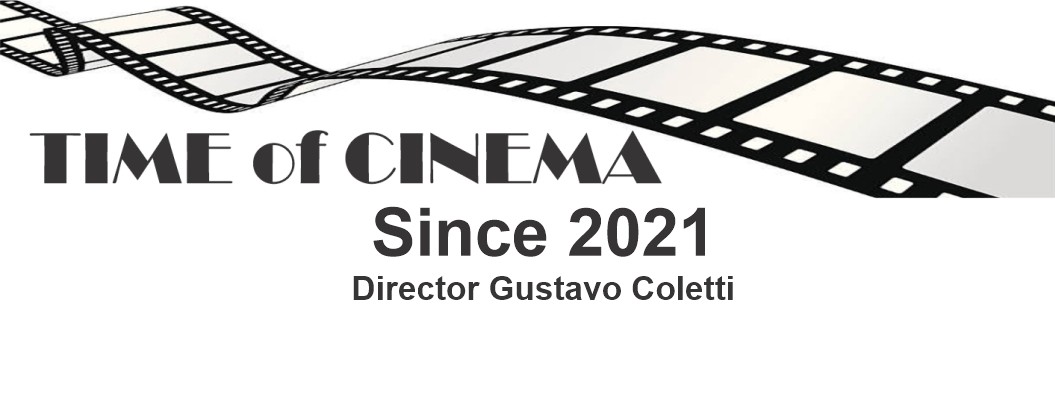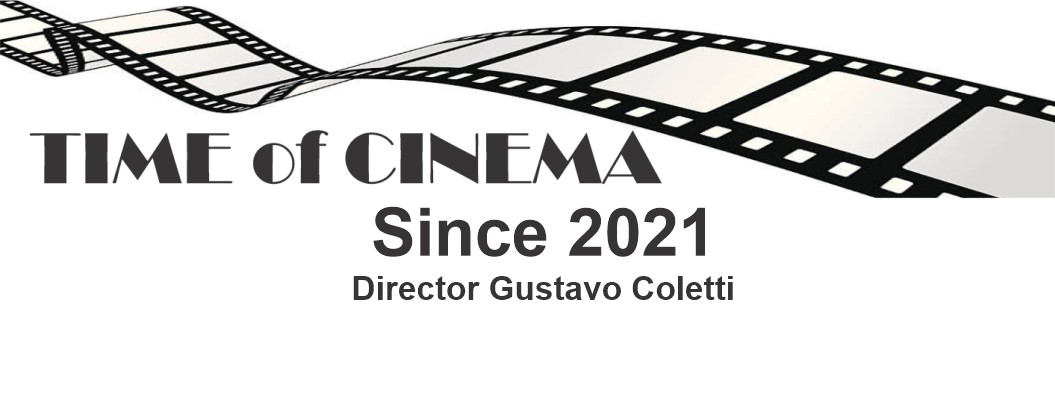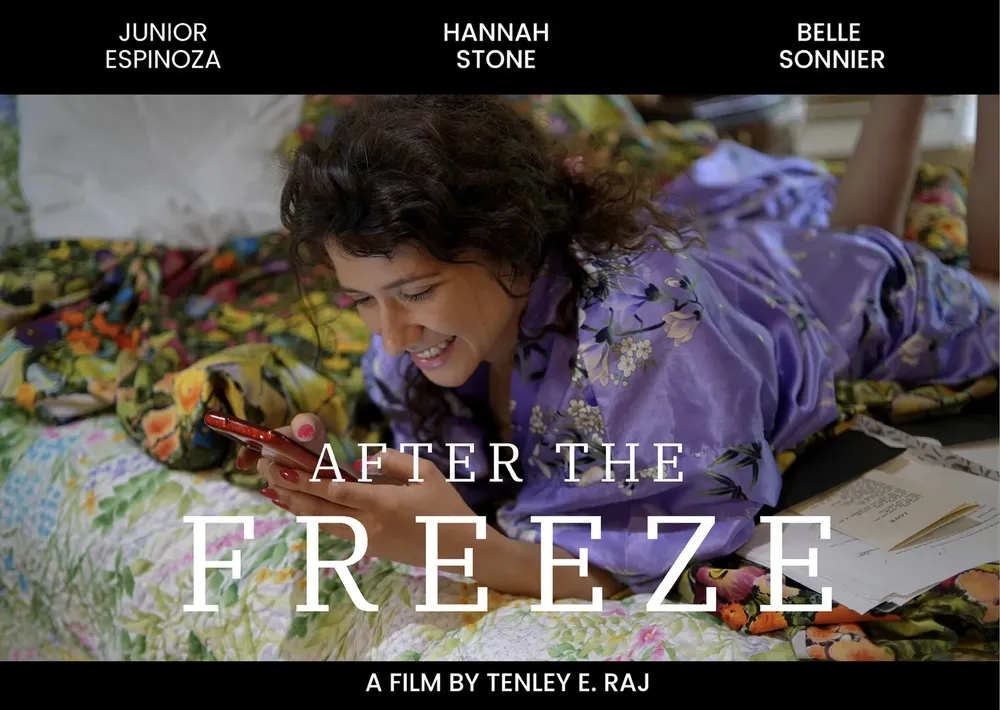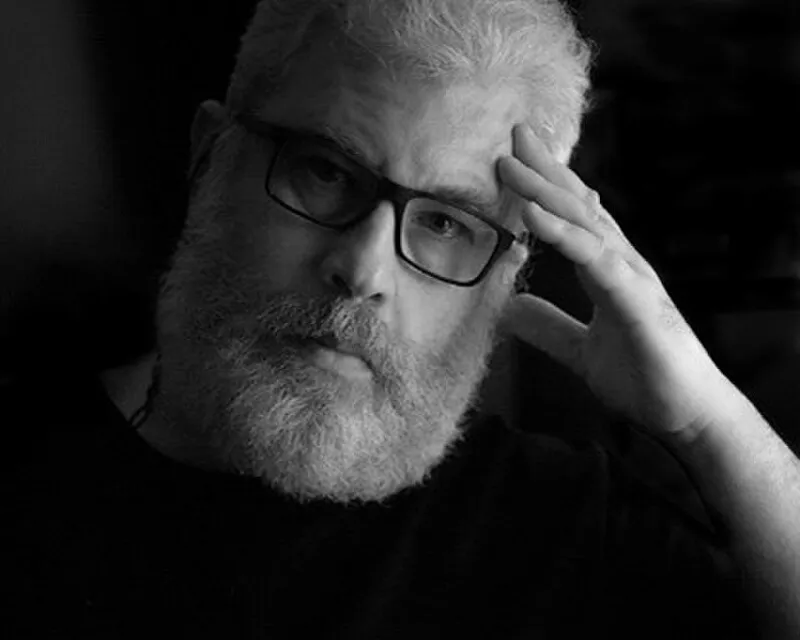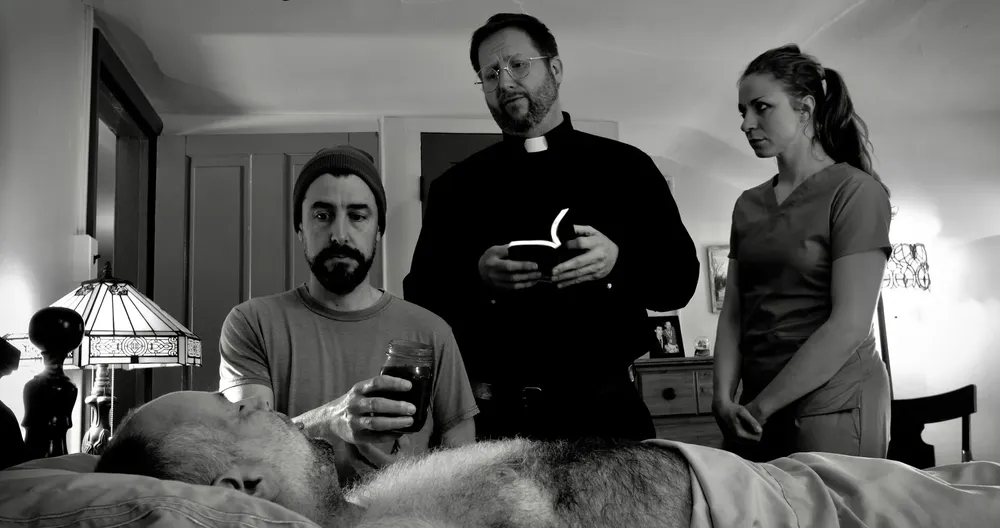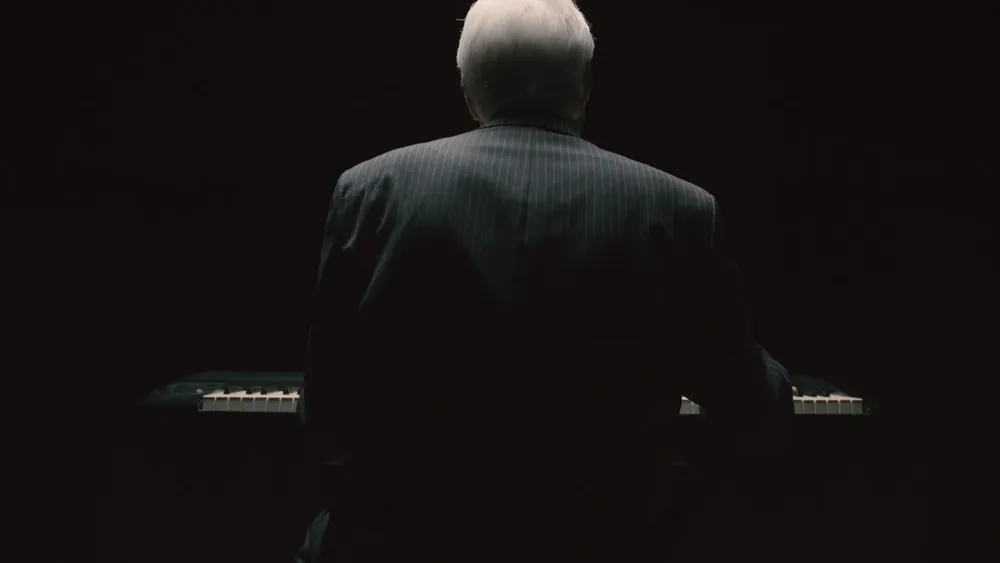
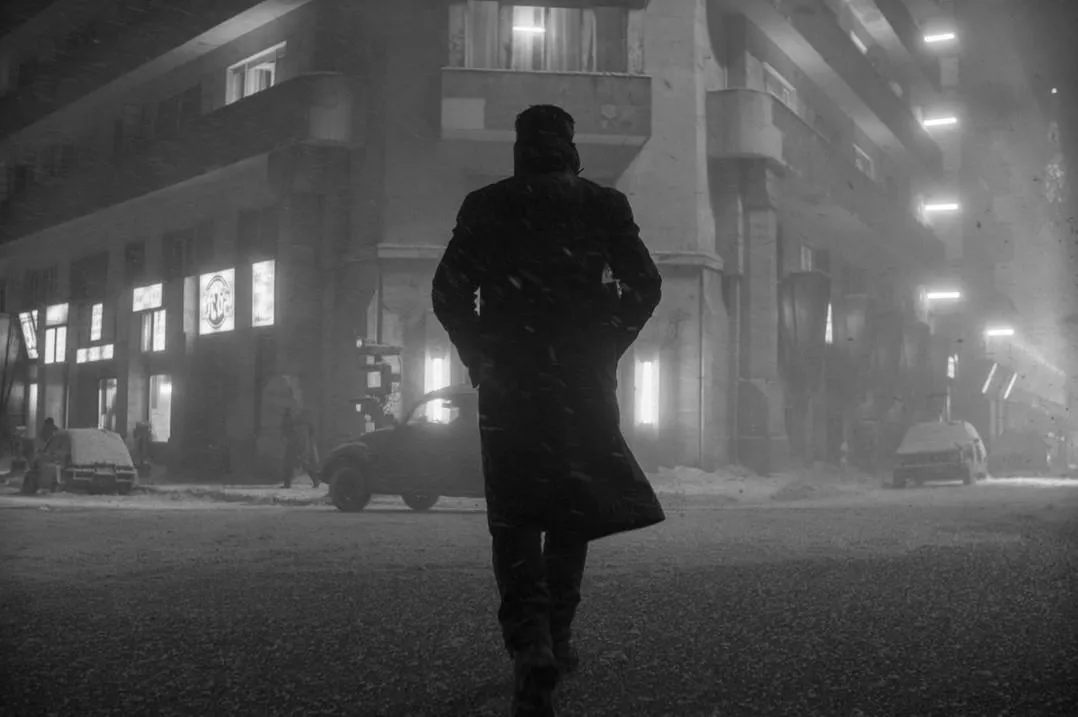
Hollywood sequels are, in the vast majority of cases, a wasted opportunity to tell a great story. By turning their goal into turning them into powerful money-making machines, their directors abandoned from the earliest creative process any possibility of argumentatively and artistically exploiting a world already experienced with satisfaction by a mass audience. "Blade Runner 2049", brought to life as a sequel 35 years after the birth of its predecessor, does not deserve to be grouped in such a poor group. Its objective is the expansion and updating of the universe structured by its first creator father and to evolve in the themes that generated effervescent debates between moviegoers of two previous generations.
It is not trivial to share the noun used by the director when explaining why he decided to take charge of the project, since that word seems to be the characteristic that best defines the latest film directed by Canadian Denis Villeneuve: after reviewing the Written by Hampton Fancher, Michael Green and Ridley Scott, the filmmaker found written material with a poetic quality, driving him fervently to turn it into sight and sound. The sad reality of these times is the fate bequeathed to these artists, even if they are visual, by forcing them to be doomed to commercial failure. This audiovisual canvas would not be the exception: Villeneuve's latest work was a huge box office flop around the globe.
Entitled "The future arrived a long time ago", Catherine Dufour's signature in an article for Le Monde Diplomatique stipulates the death of the science fiction genre in the current era, a natural consequence of the impressive technological advances offered by the modern digital age. The amazing reality is evident to anyone, but perhaps more impressive is the very record left by the seventh art: it is nothing more than seeing a futuristic film made five years ago only to feel it today as an old-fashioned one. One reads in that marvelous piece of journalistic analysis a reality as hard as a rock: “…it is clear that unleashing the potential of AI (artificial intelligence) and biotechnology opens fertile literary avenues, but our time is still waiting for a new Orwell, a new Huxley, that allows him to see beyond».
The heir to such figures is not found either in the cinema or in this film. In the talk given by the filmmaker in charge of reviving the “runner” universe, at Google, the author commented to his audience on this same point: how complicated it has been for modern creators of the seventh art to tell Sci-Fi stories. Today, perhaps as never before, inventors are running faster than dreamers. But the great George Orson Welles said that obstacles are the best friends of true artists and in the way they overcame that inconvenience is that the filmmakers of the second installment of "Blade Runner" established the foundations to create a sequel that honors its original source; but that surpasses it in the dramatic development created as a support for the advance of the story.
The two installments of "Blade Runner" are powerfully linked to existentialism, being a deep exploration of our human condition in a world of scientific fiction. It is not simple and superfluous entertainment, focused on advancing a plot with the sole objective of creating powerful action sequences. As it was developed in Christopher Nolan's "Interstellar", this film is a representation of the dilemmas that we suffer as a species and, with visionary quality we must say, we are going to suffer.
José Pablo Feinman, a philosopher with a television program called «Philosophy Here and Now«, quoted by the YouTube channel «The Eleventh Dimension», contemplates the same problem of the replicants of «Blade Runner» with a wonderful phrase: «the gods they do not do philosophy. And they do not do it, we complete here, because of their condition of immortals. Denis Villeneuve reminded his audience in the offices of the computer giant that the reason for escaping from the first Nexus was to find their creator and demand that they extend their existence. Their few years of operation (or life?) was their reason for hating it and knowing that they were mortal beings made them awaken and generate consciousness, the exact development of humans.
Precisely this birth of consciousness represented in this tandem of films is what Edouard Pflimlin denounces today with immense forcefulness in his “The Urgency to Ban Killer Robots”, another piece of fine writing for Le Monde Diplomatique. He says, in the middle of his writing, as if it were a review of Scott or Villeneuve's film, that "within about a decade, the United States could dominate the technology that will allow the design of robots capable of making the decision to kill on their own." themselves”. He complements his terrifying comment by warning that "if one day a robot had to decide for itself the fate of a human being, the very nature of war would change." That change, in many ways, is what spreads in beautiful visual canvases «Blade Runner«.
But the very condition of beings is the opportunity to engage in a profound debate about the behavior of humans with their peers. In the first installment of the saga, the replicants were created to do hard work; while, in this second part, his participation in everyday life is more from the point of view of a "citizen". Harrison Ford, Deckard for us, explained in his Google conversation this particular scenario from his interesting point of view: "If we create a being exactly like a human and possess it, that is enslaving."
And there is precisely where the high point of the debate surrounding the film emerges: what is Artificial Intelligence? A technology or a new way of life? Ryan Gosling, playing Agent K, is surprised to hear his boss, Lieutenant Joshi (Robin Wright), say that he's "done just fine so far without having a soul." But in the final shot of the celebrated conversation between Roy Battes and Rick Deckard in the first film of the saga, the dove flying into the sky is a powerful shot, a beautiful metaphor to represent the spiritual being of humans, something with which the director of this second visit to the Runner universe totally agrees.
Furthermore, K's tears of frustration upon learning that he is human leave open a big question: how can he be so confused by his condition? Can you be human and not know it? Rachel never knew that she was a replicant until Deckard told her, she never felt like one and, in this sequel, it is determined that she was even able to father a child, which is justified by her "special" status according to Tyrell's ruling in the predecessor to this film. The filmmakers mean with all this, we dare to propose, that, from what is postulated in the film, the robots created to work as slaves are a kind of life; one that the humans living with them have not been able to understand and respect. Going back to the idea elaborated by Harrison Ford, wasn't that the same problem in societies segregated by racism: the consideration of oppressed races as inferior and not equal? Didn't our ancestors also say that their human possessions were soulless ones?
Yuval Noah Harari, a famous Israeli historian who shocked the entire world with his spectacular work "From Animals to Gods", analyzes the evolution of species in a way that perfectly matches the narrative of "Blade Runner". According to him, (and here is a too light summary of his theses) an unexpected genetic change in our brain allowed us to make an evolutionary leap impossible to predict, as if it were a virus, causing a spectacular transformation in our species capable of make her conquer the world. That same scenario could be replicated in the world of AI, as a result of the massive information exchange interaction between them all over the world. It is that jump, of course, that occurs in the Runner universe, as well as for example in "Terminator" and "Matrix".
This line of thought is the path to a new scenario detached from "Blade Runner 2049". Peter Weyland, a character from "Prometheus" played beautifully by Guy Pearce, in his famous scene for the Internet from a TED talk, redefined with great ease the new condition of human beings on earth. And it is that, if they are now capable of creating intelligent life impossible to differentiate from theirs, "this should lead them to an obvious conclusion and that is that we are now the gods". The phrase of the director of the corporation that bears his last name is brought up, in addition to being fascinating, for a very strong reason: apparently David, the wonderful robot from "Prometheus" masterfully personified by Michael Fassbender in the sequel to "Alien » directed by Scott, is nothing less than a replicant.
There is a fascinating and very solid hypothesis on the Internet that stipulates that "Blade Runner" and the "Alien" saga, both franchises by Ridley Scott, are in the same universe. Acknowledging the terror caused by the possibility that in the future some producer comes up with the idea of joining the two stories and presenting some kind of barbarity called "Aliens Vs Replicants", the fact that the two productions take place in the same universe is fascinating, as long as they remain independent. And it is because of the way in which the theme of religion covered in one, deeply impacts the other, which is summed up in one sentence: if engineers created men and men created replicants, simply and simply God , the traditional entity described by religions for centuries, has died.
But the magic of the film is that all these debates are captured in the midst of powerful moving images, capable of hypnotizing the most apathetic to this type of art. It has been said that the Warner Bros. production (in a joint venture with Sony-Columbia Pictures) disappointed in its commercial aspirations due to the slowness of the narrative. But who demands acceleration in the change of planes when who is in charge of light and color in them is a Roger Deakins in a state of grace? This play really isn't one not to see; but to contemplate, and it is almost impossible to find a better compliment to the work of a cinematographer.
In each plane there is magic, there is poetry and, above all, narrative power. Denis Villeneuve described "Blade Runner 2049" as a detective film in the most classic and pure film noir style. The movement of the middle of the last century, hardly combines with a history located in the middle of this century, so there was the genius to eliminate almost all digital information in the world, consequence of a "blackout" some years before. The decision of the script is not a minor element, since it forces detective K to move around the world almost in the old way: asking people about other people, visiting the places where the clues take him, interrogating your suspects. He can't go on Facebook himself and find out about someone, he has to go out on the street and do research and that creates a vivid and exciting story.
With the possibility of making a film with a technologically advanced universe eliminated, they resorted to making classic films set in the future, embellished with old songs by Elvis Presley, Frank Sinatra and Lauren Daigle (who sings the theme from the first film). A genius almost by itself, but that largely works because of what we propose to call the “Scott universe” here. The films of the English director, in charge of the first and producer of this film, are characterized by the detailed and ambitious work in production design (art and set design). "Gladiator", "Black Hawk Down" and "Alien" are strong examples of his immense ability to portray his own worlds on the big screen.
This work delves into that and takes it one step further. The production cost was 150 million USD, which is largely explained by an artistic decision of the director: to create the sets in reality and try to use as little green screen and CGI as possible. There is no doubt that a film that captures real scenarios as magnificent as those presented here, through the eye of a genius like the cinematographer referred to here, is one with enormous visual power. Furthermore, and as Ford himself said in the aforementioned interview: acting in a real space is very different from doing it in front of a green screen. On the platform of Google, the famous actor explained it with the mastery that simplicity contains: "here I react naturally to the people in the first row, to you, to those in the last row." It wouldn't be the same with a screen,
A commitment, undoubtedly, to make a great film is felt in every part of the footage. And "Blade Runner 2049" is. It is a love letter to the original, as Villanueve mentioned in several conversation spaces; but under the aesthetics of a fascinating director of our time who had total freedom to express himself. There are certain coincidences in the script that have bothered some critics; but this can be seen as a lack of suspension of disbelief. This was already mentioned in these same pages, when it was proposed to enjoy the cinema as if it were a parallel universe, and the subjectivism that dominates modern criticism, asking to make the film that the analysts wanted to see and leaving aside in his writings the made by the filmmaker.
But above all what is mentioned here, «Blade Runner 2049» is, like «Blade Runner», a love story. One that challenges our beliefs and more primary conceptions. It is possible to find stories online that let us see that centuries ago a love relationship between a human being and an animal was unthinkable. Today, this generation considers their pets as members of their family, regarding them as their children and siblings. It is not strange to hear sighs anticipating the tragedy, in movie theaters around the world, moments before the character of Sylvia Hoeks murders Joi, the character that has catapulted Ana de Armas worldwide.
Joi is a hologram, a computer program; but one who loves K and whom he loves, as if they were two living beings. The tears of one surviving tragedy are telling and powerful. The sentiment overlaps with Deckard and Rachel. So can a robot love another, or a human love a robot? It is postulated in an article in this same space that love is the most powerful feeling in the universe and, in truth, one that manages to overcome everything. And few works show with such forcefulness and in such a beautiful way precisely that, that irrepressible force, as «Blade Runner 2049» does. Difficult to find better reasons that justify both going to the movies.
